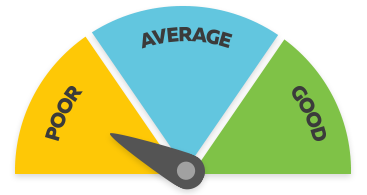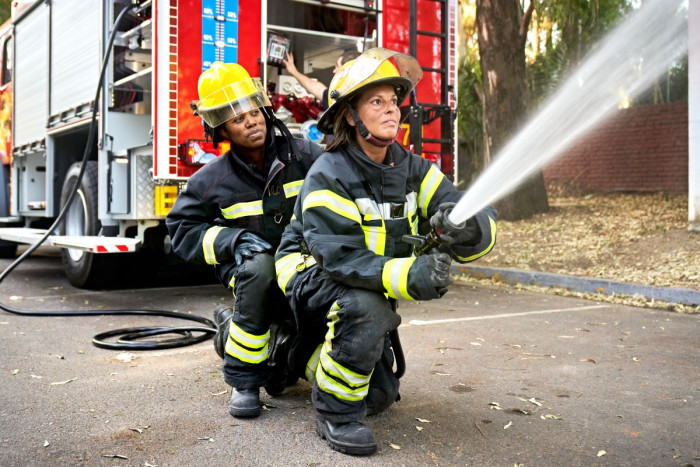Firefighter
Kaitinei Ahi
Alternative titles for this job
Firefighters control and put out fires, help rescue people and animals, and educate the public about fire safety and fire prevention.
Pay
Firefighters usually earn
$60K-$71K per year
Firefighters can earn
$54K-$77K per year
Source: TEC research
Job opportunities
Pay
Pay for firefighters varies depending on experience, responsibilities and performance.
- Firefighters usually earn $60,000 to $71,000 a year.
- Firefighters can earn $54,000 to $77,000.
- With extra training, firefighters can become station officers and earn a base salary of $88,000 to $108,000.
- Operational managers can earn between $126,000 and $184,000 a year.
Firefighters can also earn overtime and allowances for extra duties.
Volunteer firefighters are not paid.
Sources: TEC research; Fire and Emergency New Zealand, 'New Zealand Professional Firefighters Collective Employment Agreement' and 'Fire Emergency Commanders Association Collective Employment Agreement', www.fireandemergency.nz, accessed December 2022.
(This information is a guide only. Find out more about the sources of our pay information)
What you will do
Firefighters may do some or all of the following:
- educate the public about fire prevention
- install and inspect smoke alarms or fire extinguishers in homes, boats, aircraft and businesses
- put out fires and prevent fires from spreading
- operate vehicles such as firetrucks and helicopters
- investigate the causes of fires and chemical spills
- attend accidents or emergencies such as car accidents, chemical spills and natural disasters
- provide first aid
- carry out search and rescue operations
- help plan and develop evacuation schemes for commercial buildings
- maintain and service fire fighting equipment.
Skills and knowledge
Firefighters need to have knowledge of:
- different types of fires and chemical spills and how to deal with them
- different methods for rescuing people from hazardous situations
- how to check, maintain and use firefighting equipment
- relevant fire safety legislation
- fire safety precautions, and how these relate to buildings and building construction
- how to handle hazardous goods
- how to identify potential fire hazards and risks and eliminate or reduce them
- first aid
- how to educate people about fire prevention.
Working conditions
Firefighters:
- are usually rostered to work four days on, then four days off, which include weekends and public holidays. They work 12-hour shifts, either 8am to 8pm or 8pm to 8am
- are based at fire stations, New Zealand Air Force bases and airports
- may work in hazardous conditions involving fire, poisonous smoke and chemicals
- travel nationally and internationally to attend emergency events, peace-keeping activities or war zones.
Entry requirements
You need to do training to become a firefighter.
You need:
- to complete a 12-week training course
- to be over 18 years old
- to pass a police check
- to pass a medical assessment and fitness test.
- Fire and Emergency New Zealand website – information on entry requirements
- Fire and Emergency New Zealand website – videos on preparing for the recruitment process
To become a firefighter for the New Zealand Air Force you need to:
- be a permanent resident or citizen
- be 17 years of age or older
- pass medical, physical fitness, colour vision and psychological tests
- be free from criminal convictions
- hold 10 credits in NCEA Level 1 Literacy and Numeracy
- hold a Class 1 or 2 full manual driver licence.
Air force firefighters then complete:
- 12 weeks of basic military training at the RNZAF Base Woodbourne near Blenheim
- 12 weeks of fire and rescue training at the Linton Military Camp near Palmerston North
- seven weeks of driver training
- seven weeks of advanced fire trade training.
The Vulnerable Children Act 2014 means that if you have certain serious convictions, you can’t be employed in a role where you are responsible for, or work alone with, children.
Secondary education
You usually don’t need specific NCEA levels for this job, but physical education to at least NCEA Level 1 is useful.
Ten credits in NCEA Level 1 Literacy and Numeracy are required for air force firefighters.
Personal requirements
Firefighters need to be:
- good communicators
- able to relate well to a wide range of people and cultures
- confident and able to remain calm in emergencies
- good at solving problems and making decisions
- patient and helpful
- disciplined, honest and reliable
- able to work as part of a team.
Useful experience
Useful experience for firefighters includes:
- volunteer firefighting
- working with people from a diverse range of communities, ethnicities and backgrounds
- being part of a team such as a sports team
- involved in community-based activities such as coaching sports
- teaching, training or coaching experience.
Physical requirements
Firefighters need to have excellent fitness and health and must be strong as the job is physically demanding. They also need to have good hearing and eyesight, normal colour vision and no breathing problems.
Find out more about training
- Fire and Emergency New Zealand
- 04 496 3600 - media@fireandemergency.nz - www.fireandemergency.nz
- New Zealand Air Force
- 0800 136 723 - www.defencecareers.mil.nz
What are the chances of getting a job?
Limited intakes for new firefighters
Fire and Emergency New Zealand and the New Zealand Air Force run a limited intake of firefighters up to two times a year. There is high competition for these roles.
The number of firefighter roles usually stays steady.
According to the Census, 2,421 firefighters worked in New Zealand in 2018. According to Fire and Emergency New Zealand, in 2017 there were also around 11,000 volunteer firefighters.
Women encouraged to apply
Fire and Emergency New Zealand and the New Zealand Air Force are committed to diversity, and want to increase the number of women and have more of a mix of cultures on their staff.
Improve your chances by volunteering
Chances of getting a job are best for those who volunteer as firefighters or who have experience working in community organisations such as civil defence or St John Ambulance.
Most firefighters employed by Fire and Emergency New Zealand
The largest employer of firefighters is Fire and Emergency New Zealand. Other organisations that employ firefighters include airport authorities and the New Zealand Air Force.
Sources
- Defence Careers website, accessed July 2018, (www.defencecareers.mil.nz).
- Fire and Emergency New Zealand 'Annual Report June 2017', 30 June 2017, (www.fireandemergency.nz).
- Fire and Emergency New Zealand website, accessed July 2018, (www.fireandemergency.nz).
- Manch, T, 'A Day in the Life of Wellington Firefighters', 27 July 2018, (www.stuff.co.nz).
- Ministry of Business, Innovation and Employment, 'Occupation Outlook Fire Fighters', accessed July 2018, (www.mbie.govt.nz).
- Moore, R, 'Demand for Firefighter Recruits Growing', 15 July 2018, (www.stuff.co.nz).
- Redmond, A, 'Volunteer Firefighting not for the Faint of Heart, or Weak of Limb', 25 July 2018, (www.stuff.co.nz).
- Stats NZ, '2018 Census Data', 2019.
(This information is a guide only. Find out more about the sources of our job opportunities information)
Progression and specialisations
Firefighters may move into management roles to become senior firefighters, station officers or air force officers.
Firefighters may also progress to jobs in areas such as:
- training
- fire investigation
- fire protection
- fire risk management.
Last updated 16 December 2024


